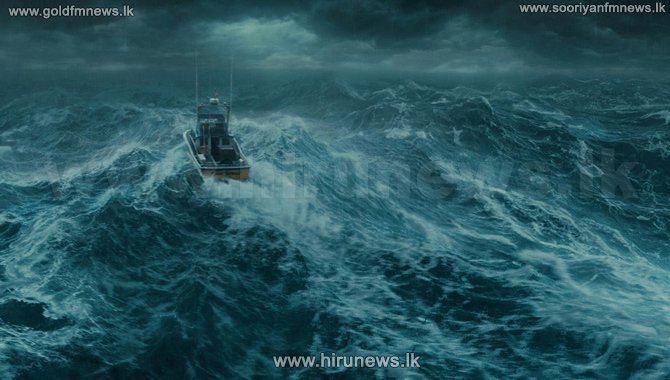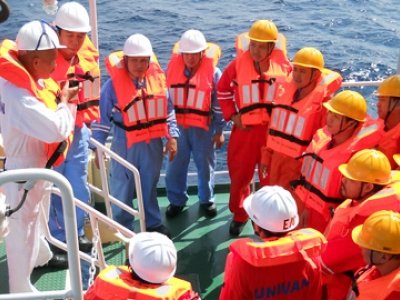Maritime accidents can have devastating consequences, ranging from loss of life and environmental damage to financial losses and legal ramifications. Understanding the causes and liabilities associated with these accidents is essential for preventing future incidents and ensuring accountability in the maritime industry.
Introduction to Maritime Accidents
Definition and Significance Maritime accidents refer to incidents that occur at sea or on navigable waters, including collisions, groundings, fires, and environmental disasters. These accidents pose significant risks to life, property, and the environment, highlighting the importance of effective safety measures and regulatory compliance in the maritime industry.
Overview of Causes and Liability Maritime accidents can be caused by various factors, including human error, equipment failure, adverse weather conditions, and third-party negligence. Understanding the causes and liabilities associated with these accidents is crucial for determining accountability and implementing preventive measures.
Common Causes of Maritime Accidents
Human Error Human error is a leading cause of maritime accidents, encompassing navigational mistakes, communication errors, and lapses in judgment. Fatigue, lack of training, and inadequate supervision can contribute to crew errors and accidents at sea.
Equipment Failure Equipment failure and malfunction, such as engine breakdowns, steering system failures, and electrical faults, can compromise vessel safety and navigation, leading to accidents and operational disruptions.
Adverse Weather Conditions Adverse weather conditions, including storms, rough seas, heavy fog, and reduced visibility, pose significant risks to vessel navigation and safety, increasing the likelihood of collisions, groundings, and other accidents.
Liability in Maritime Accidents
Shipowner’s Liability Shipowners have a legal obligation to ensure the seaworthiness of their vessels and maintain a safe working environment for crew members. They may be held liable for maritime accidents resulting from negligence, unseaworthiness, or failure to comply with safety regulations.
Crew’s Responsibility Crew members are responsible for operating vessels safely and adhering to safety protocols and procedures. They are expected to undergo training, maintain competency, and exercise due diligence to prevent accidents and mitigate risks at sea.
Third-Party Liability Third parties, including contractors, service providers, cargo owners, and shippers, may also be held liable for maritime accidents if their actions or negligence contribute to the occurrence of the accident. They have a duty to exercise reasonable care and diligence in their operations and interactions with vessels.
Human Error as a Leading Cause
Navigational Mistakes Navigational errors, such as misjudging distances, incorrect course plotting, or failure to heed navigational warnings, can lead to collisions, groundings, and other accidents at sea, highlighting the importance of vigilance and adherence to navigational best practices.
Fatigue and Crew Errors Fatigue resulting from long hours of work, inadequate rest periods, or demanding schedules can impair crew judgment, reaction times, and performance, increasing the risk of accidents and operational errors onboard vessels.
Equipment Failure and Malfunction
Engine Failures Engine failures, whether due to mechanical breakdowns, fuel contamination, or lack of maintenance, can result in loss of propulsion, power loss, and operational disruptions, posing safety hazards to vessels and crew members.
Steering System Malfunctions Malfunctions in the steering system, such as hydraulic failures, mechanical faults, or software glitches, can impair vessel maneuverability and navigation, increasing the risk of collisions, groundings, or loss of control.
Impact of Adverse Weather Conditions
Storms and Rough Seas Storms, high winds, and rough seas can create hazardous conditions for vessels, affecting stability, maneuverability, and safety at sea, necessitating caution, preparation, and emergency response measures to mitigate risks.
Heavy Fog and Reduced Visibility Heavy fog and reduced visibility can obscure navigational landmarks, impede communication, and increase the risk of collisions, groundings, and accidents at sea, requiring vessels to exercise caution and use navigational aids effectively.
Legal Implications and Regulatory Compliance
International Maritime Law International maritime law governs liability and compensation for maritime accidents, establishing standards and procedures for addressing legal issues, jurisdictional matters, and liability determinations.
National Regulations and Enforcement National regulatory agencies, such as the U.S. Coast Guard in the United States, enforce maritime regulations, conduct inspections, and oversee compliance with safety, security, and environmental standards to ensure the safety and integrity of maritime operations.
Shipowner’s Liability
Duty of Care Shipowners owe a duty of care to passengers, crew members, and third parties to provide safe vessels, proper maintenance, and adequate supervision to prevent accidents and ensure the welfare of all onboard.
Vessel Seaworthiness Shipowners are responsible for ensuring the seaworthiness of their vessels, including structural integrity, equipment functionality, and compliance with safety standards, to minimize the risk of accidents and operational failures at sea.
Crew’s Responsibility
Training and Competency Crew members are required to undergo training, maintain competency, and demonstrate proficiency in their roles and responsibilities to operate vessels safely and effectively in accordance with industry best practices and regulatory requirements.
Adherence to Safety Protocols Crew members are expected to adhere to safety protocols, procedures, and regulations to mitigate risks, prevent accidents, and respond effectively to emergencies, promoting a culture of safety and accountability onboard vessels.
Third-Party Liability
Contractors and Service Providers Contractors and service providers engaged in maritime operations, such as shipyards, repair facilities, and terminal operators, may be held liable for accidents resulting from their actions or negligence during vessel servicing, maintenance, or handling operations.
Cargo Owners and Shippers Cargo owners and shippers may be held liable for maritime accidents if their cargo poses hazards or risks to vessels, crew members, or the environment, necessitating compliance with packaging, stowage, and transportation regulations to ensure safe transport and handling.
Prevention and Risk Mitigation
Safety Training and Education Safety training and education programs for crew members, officers, and maritime personnel are essential for promoting safety awareness, enhancing skills, and fostering a culture of safety onboard vessels to prevent accidents and minimize risks.
Maintenance and Inspection Regimes Regular maintenance, inspections, and audits of vessels, equipment, and systems are critical for identifying potential hazards, addressing deficiencies, and ensuring the integrity and reliability of maritime operations to prevent accidents and operational failures.
Emergency Response and Salvage Operations
Search and Rescue Efforts Timely and coordinated search and rescue efforts are essential for saving lives, minimizing casualties, and preserving assets in maritime accidents, requiring rapid mobilization, effective communication, and collaboration between maritime authorities and stakeholders.
Environmental Cleanup Environmental cleanup efforts following maritime accidents, such as oil spills or chemical releases, require swift and coordinated response measures to contain pollutants, mitigate environmental damage, and restore affected ecosystems to minimize long-term impacts and liabilities.
Insurance and Compensation
P&I Clubs Protection and indemnity (P&I) clubs provide insurance coverage and mutual protection to shipowners, operators, and charterers against liabilities, losses, and expenses arising from maritime accidents, including legal defense costs, compensation claims, and pollution cleanup expenses.
Insurance Coverage Marine insurance policies, including hull and machinery insurance, protection and indemnity (P&I) insurance, and cargo insurance, provide coverage for vessels, cargo, and liabilities associated with maritime accidents, ensuring financial protection and risk management for maritime stakeholders.
Case Studies and Examples
Notable Maritime Accidents Examples of notable maritime accidents include the sinking of the Titanic, the Exxon Valdez oil spill, and the Costa Concordia grounding, highlighting the human, environmental, and financial consequences of maritime accidents and the legal proceedings and settlements that followed.
Legal Outcomes and Settlements Legal outcomes and settlements in maritime accident cases vary depending on factors such as liability determinations, jurisdictional considerations, insurance coverage, and negotiation outcomes, with parties seeking compensation for damages, loss of life, environmental harm, and financial losses.
Conclusion
Maritime accidents are complex events with far-reaching consequences, requiring a multifaceted approach to prevention, accountability, and response. By understanding the causes and liabilities associated with these accidents and implementing effective safety measures, regulatory compliance, and risk mitigation strategies, stakeholders can work together to enhance safety standards, minimize risks, and ensure the sustainability of maritime operations for the future.
FAQs
1. What are the main causes of maritime accidents? Common causes of maritime accidents include human error, equipment failure, adverse weather conditions, and third-party negligence, highlighting the importance of preventive measures and safety protocols in the maritime industry.
2. Who is liable in maritime accidents? Liability in maritime accidents may fall on shipowners, crew members, third parties, contractors, and service providers, depending on factors such as negligence, compliance with safety regulations, and contributory actions or omissions.
3. What legal implications do maritime accidents have? Maritime accidents may have legal implications such as liability determinations, compensation claims, regulatory enforcement actions, insurance coverage disputes, and compliance with international maritime law and conventions.
4. How can maritime accidents be prevented? Maritime accidents can be prevented through safety training and education, maintenance and inspection regimes, adherence to safety protocols, compliance with regulatory standards, and fostering a culture of safety and accountability onboard vessels.
5. What role does insurance play in maritime accidents? Insurance coverage, including hull and machinery insurance, protection and indemnity (P&I) insurance, and cargo insurance, provides financial protection and risk management for maritime stakeholders, covering liabilities, losses, and expenses associated with maritime accidents.


